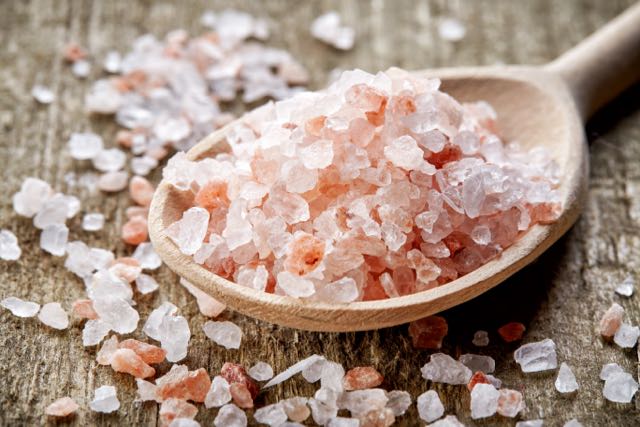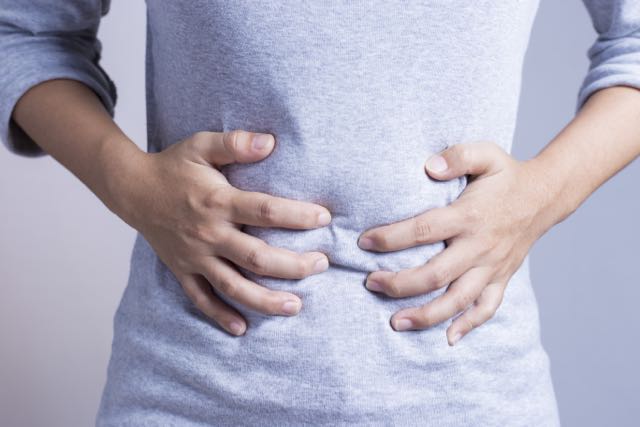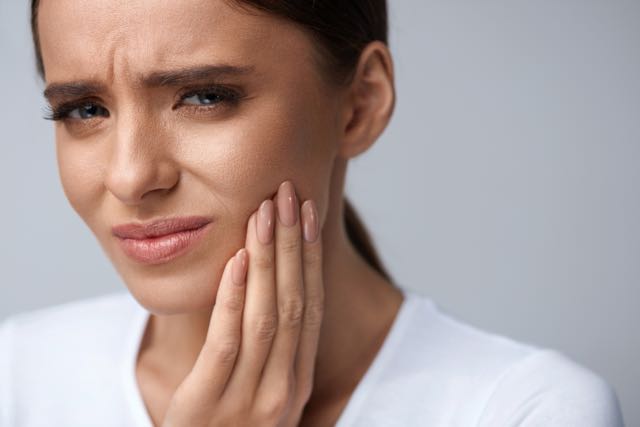

Surprising Signs You Are Too Stressed
Feeling stressed? Worried that if may be affecting your health? While we all can feel stressed from time to time, it’s easy to shrug it off. But ongoing chronic stress can have a profound effect on our health, mood and even life expectancy so it’s important to watch out for the signals and take action. Of course we are aware of the classic symptoms such as fatigue, anxiety, insomnia, heart palpitations but stress can creep up on us and lead to a range of less obvious symptoms. Here are some common less familiar signs that stress may be affecting you.

You Crave Sugar
While some people under stress lose their appetite, for many people they turn to sugary foods or carbs. This is often because cortisol, one of our major stress hormones has an impact on our blood sugar levels causing them to rollercoaster. When they dip it can lead us to crave something sugary to pick us up.
Take Action: Keep your blood sugar levels balanced through the day – focus on protein and plenty of vegetables at each meal and for snacks try and include some protein or healthy fats such as nuts, apple with nut butter, hummus and vegetable sticks, yogurt and berries.

You Add Salt to Everything
Our adrenal glands control a number of hormones including Aldosterone. This hormone is involved in balancing sodium and potassium. When we are adrenally compromised we can find the balance of these electrolytes is affecting leading to a reduction in sodium which in turn leads us to crave saltier foods.
Take Action: avoid processed salty foods – instead add a little Himalayan salt to your meals or choose naturally healthier options such as miso paste, tamari soy sauce, canned tomato juice. Include plenty of the electrolyte magnesium too which is vital for a healthy stress response

Hair Loss
Often after a stressful event you may notice more hair on your brush. This can be linked to changes in sex hormones including testosterone which are also affected by our adrenal glands. In addition when we are under stress our bodies use up key nutrients which are also important for healthy hair including B vitamins and amino acids. High cortisol levels can also impact on thyroid function which can also influence hair loss.
Take Action: The best nutrients for hair growth include B vitamins especially biotin, vitamin D, C and E, iron and zinc. Consider taking a high quality multi and protein powder

Leg Cramps and Stiffness
Magnesium is an essential mineral with about 70 per cent in the bones and the remaining 30 per cent in the soft tissues and body fluids. It is an essential mineral for adrenal function so we use up vast amounts when stressed. It is also important for calming the mind and body including alleviating muscle cramps and twitches. Low levels can lead to muscle pain, aches and stiffness as well as leg cramps. Other common symptoms including anxiety, insomnia and irritability. If you exercise regularly you are more likely to be low in magnesium as being an electrolyte we also sweat it out.
Take Action: Include plenty of magnesium rich foods daily – green leafy vegetables, seeds, tahini, nut butters, soybeans, lentils, fish. You may find a supplement helpful particularly in the evening to help you unwind. Try Epsom Salt bathing too – simply add 2 cups of Epsom salts in a warm bath and soak for 20 minutes.

Skin Outbreaks
Our skin is sensitive to hormone balance and changes in testosterone can often lead to breakouts. Supporting detoxification pathways can be helpful as well as keeping off inflammatory foods such as sugary foods and refined carbs. Watch out for dairy too which is known to promote insulin growth factor (IGF) which can excerbate sebum production. Check out our blog on ACNE
Take Action: Add more greens in your diet, switch to dairy free alternatives and focus more on protein and vegetables with some slow releasing carbs like brown rice, buckwheat, quinoa. Include plenty of soluble fibre particularly flaxseed which can help with hormone balance and try including fermented foods such as sauerkraut, coconut yogurt and kefir.

Tummy Pain
The brain’s nervous system is linked to the gut’s, so stress can wreak havoc on your digestive tract affecting gut motility. That is often why many people experience bouts of diarrhoea around a stressful situation or stomach pain.
Take Action: If diarrhoea is a problem try including the probiotic yeast Saccharomyces boulardii which has been studied for its benefit in reducing loose stools. Add in soluble fibre that is easy to digest such as ground flaxseed and starchy vegetables like sweet potato. Avoid known gut irritants particularly caffeine, alcohol and gluten. Include fermented foods like yogurt, kefir, miso, sauerkraut, kimchi daily.

Bleeding Gums
Cracks in the corner of your mouth, mouth ulcers and bleeding gums can all be common signs of stress. Vitamin C is a vital nutrient for adrenal function but is also important for supporting a healthy immune response. Under stress levels of vitamin C can be depleted making us more prone to infections. It is also important for skin health and collagen production. Often when levels are low it can lead to easy bruising and bleeding gums when brushing teeth.
Take Action: there are loads of great food sources of vitamin C including citrus fruits, berries, leafy green vegetables, kiwi fruit, red pepper, tomatoes and watercress.








